
Immersion Recovery Center
Verified
Verified
View This Center’s Verified License
Delray Beach, Florida, United States
Provider’s Policy
Covered plans and verification of benefits.
$24,500+
- 28+ days
A special 3-Phase program delivers treatment for addiction and mental health, tailoring recovery to each client in a luxurious 4-story facility by the beach.
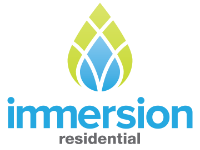
Call Immersion Recovery Center
Connect with Immersion Recovery Center by calling their admissions team directly.
- Message Us
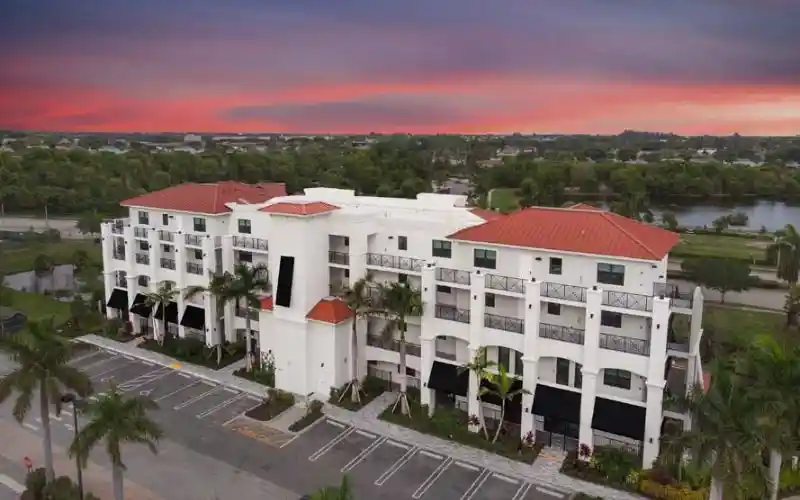



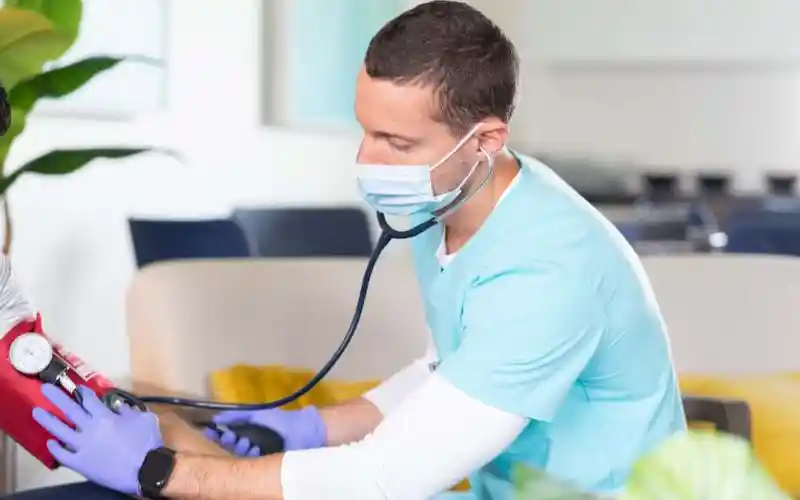





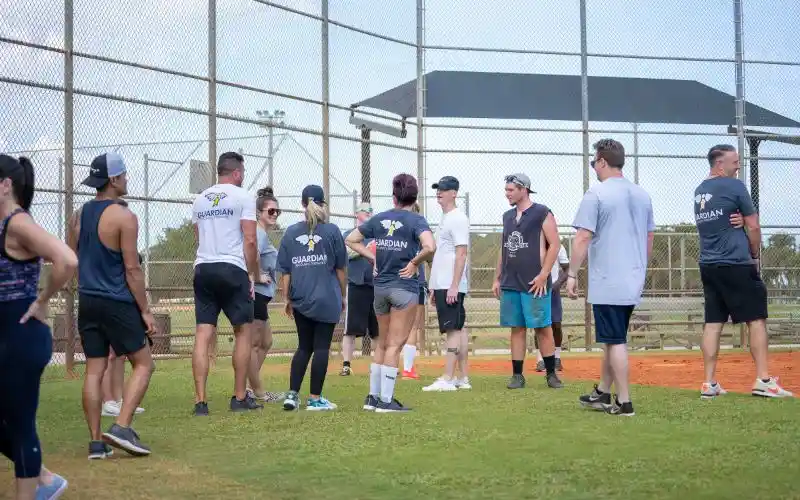


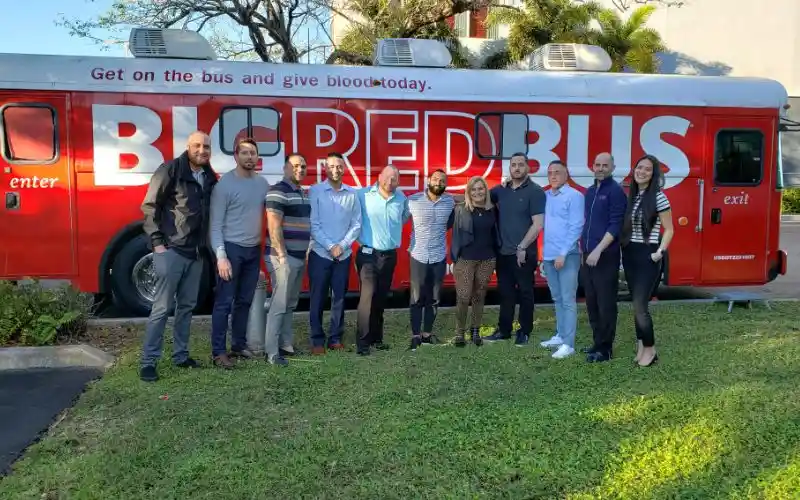
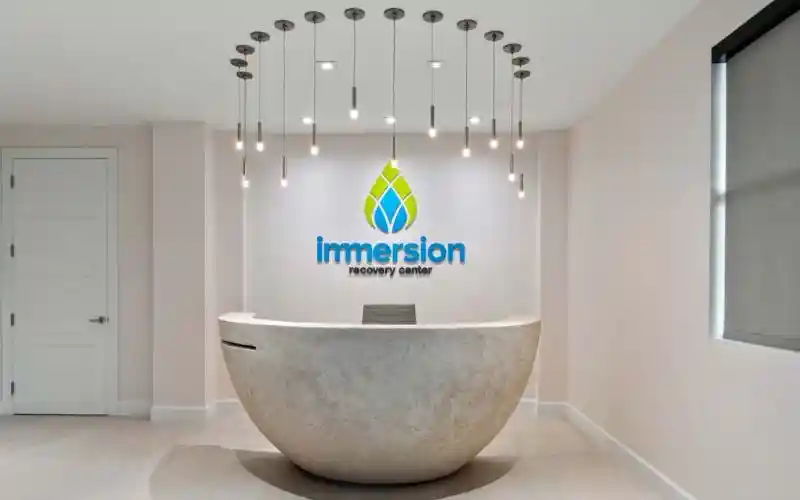



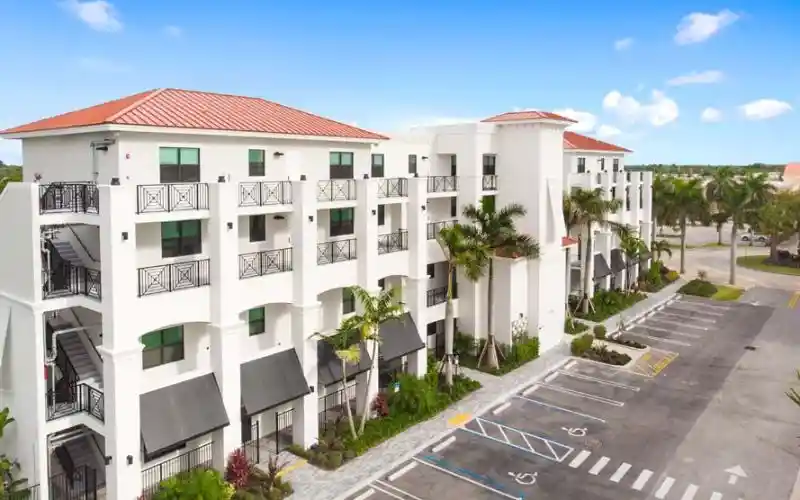
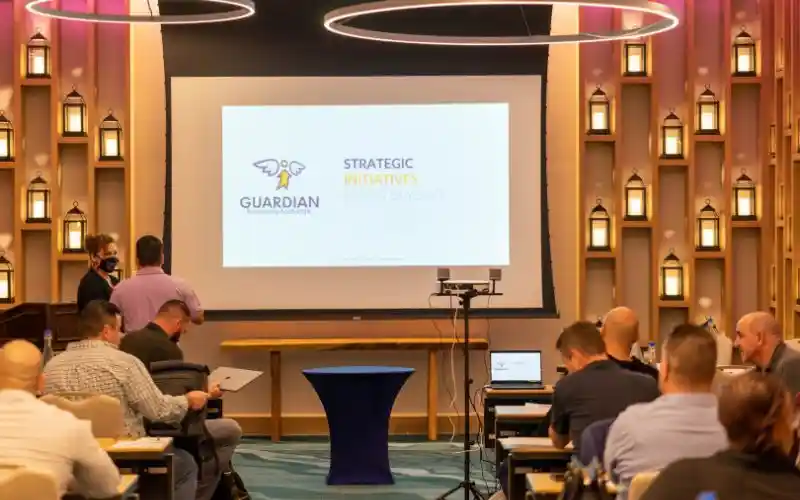

3 Phases of Recovery
Immersion Recovery’s 3-Phase program takes clients through comprehensive stages of recovery, starting with detox and stabilization in their residential setting. Each phase typically lasts 28 days, with phase 3 lasting as long as clients see fit. From inpatient to partial hospitalization to outpatient, each client enjoys a wholly personalized and intensive approach to lasting recovery.


Treatment Blended to Individual Needs
Immersion Recovery uses a combination of clinical, evidence-based, and 12-Step care to best meet the needs of each client. A clinical assessment during the admissions process helps Immersion’s team create an effective treatment plan using their resources, taking into account the preferences and desires of each client. With this approach, clients can experience a bit of each treatment modality, from 12-Step to holistic, and find what’s best for them.
Executive And Family Programs
Understanding the needs of executive clientele, Immersion Recovery offers an executive-focused treatment plan that allows greater tech access and privacy. CEOs, entrepreneurs, celebrities, and others who require a private space to work can do so at Immersion. For families, Immersion Recovery offers a specific family program with family therapy and family workshops.
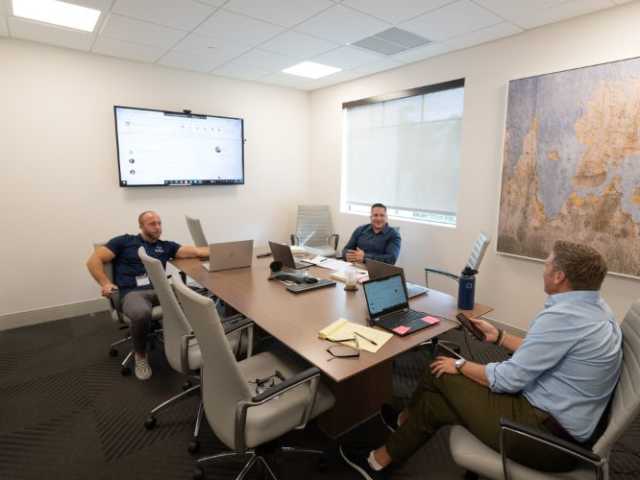
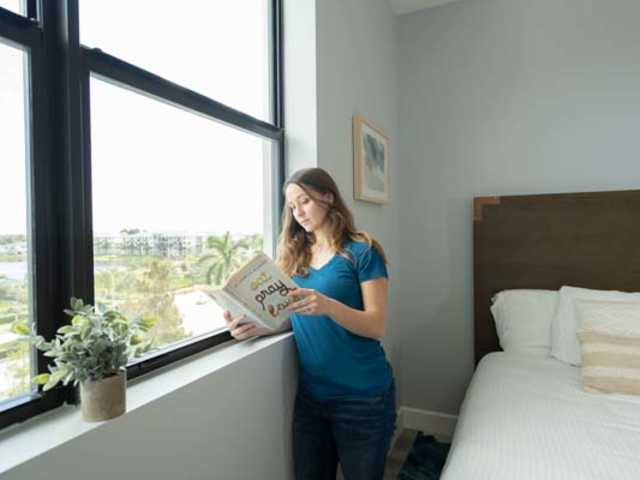
Dual-Diagnosis Care
Immersion Recovery treats addiction and co-occurring mental health conditions, knowing that the two often occur simultaneously. Their clinical and therapeutic staff help ensure each area receives care, aiming to heal what’s behind addiction for lasting results and hope.
Center Overview
Founded
2017
Occupancy
50+
Languages
Accreditation
Joint Commission
Price & Length
$34,500 | 28 days – Phase 1
$24,500 | 28 days – Phase 2
$5,600 | 30 days – Phase 3
$1,000 | 1 night – Detox
$2,000 | 1 night – Executive Detox
Extended options available
Who We Treat
Men
N/A
Women
N/A
Executives
Executives
Executive treatment programs typically directly support the needs of people who manage businesses and may provide flexible schedules and office space to allow work during treatment.
LGBTQ+
LGBTQ+
Addiction and mental illnesses in the LGBTQ+ community must be treated with an affirming, safe, and relevant approach, which many centers provide.
Professionals
Professionals
Busy, high-ranking professionals get the personalized treatment they need with greater accommodations for work, privacy, and outside communication.
Address
3333 South Congress Ave. Suite 401, Delray Beach, FL 33445
Treatment
Specializations
Alcohol
Alcohol
Using alcohol as a coping mechanism, or drinking excessively throughout the week, signals an alcohol use disorder.
Co-Occurring Disorders
Co-Occurring Disorders
A person with multiple mental health diagnoses, such as addiction and depression, has co-occurring disorders also called dual diagnosis.
Drug Addiction
Drug Addiction
Drug addiction is the excessive and repetitive use of substances, despite harmful consequences to a person’s life, health, and relationships.
Executive Program
Executive Program
Drug addiction is the excessive and repetitive use of substances, despite harmful consequences to a person’s life, health, and relationships.
Opioids
Opioids
Opioids produce pain-relief and euphoria, which can lead to addiction. This class of drugs includes prescribed medication and the illegal drug heroin.
Twelve Step
Twelve Step
Incorporating spirituality, community, and responsibility, 12-Step philosophies prioritize the guidance of a Higher Power and a continuation of 12-Step practices.
Gender-Specific
Gender-Specific
Separate treatment for men or women can create strong peer connections and remove barriers related to trauma, shame, and gender-specific nuances.
Detox
Detox
Detox fully and safely removes toxic substances from the body, allowing the next steps in treatment to begin with a clean slate.
Treatment Services
Day Treatment
Day Treatment
In a PHP, patients live at home but follow an intensive schedule of treatment. Most programs require you to be on-site for about 40 hours per week.
Detox
Detox
Detox fully and safely removes toxic substances from the body, allowing the next steps in treatment to begin with a clean slate.
Intensive Outpatient Program
Intensive Outpatient Program
In an IOP, patients live at home, but attend treatment for up to 30 hours a week. Most programs include talk therapy, support groups, and other methods.
Outpatient Program
Outpatient Program
During outpatient rehab, patients attend a structured treatment program while continuing to live at home.
Residential
Residential
In a residential rehab program, patients live onsite, with access to daily treatment and 24-hour care. An average stay is 30-90 days.
Outpatient Therapy
N/A
Philosophy
Evidence-Based
Evidence-Based
A combination of scientifically rooted therapies and treatments make up evidence-based care, defined by their measured and proven results.
Twelve Step
Twelve Step
Incorporating spirituality, community, and responsibility, 12-Step philosophies prioritize the guidance of a Higher Power and a continuation of 12-Step practices.
Family Involvement
Family Involvement
Providers involve family in the treatment of their loved one through family therapy, visits, or both–because addiction is a family disease.
Medical
Medical
Medical addiction treatment uses approved medications to manage withdrawals and cravings, and to treat contributing mental health conditions.
Therapies
Acupuncture
N/A
Stress Management
Stress Management
Patients learn specific stress management techniques, like breathing exercises and how to safely anticipate triggers.
Spiritual Care
Spiritual Care
Tending to spiritual health helps treatment become more effective, allowing patients to better cope with their emotions and rebuild their spiritual wellbeing.
Group Therapy
N/A
1-on-1 Counseling
1-on-1 Counseling
Patient and therapist meet 1-on-1 to work through difficult emotions and behavioral challenges in a personal, private setting.
Mindfulness Therapy
Mindfulness Therapy
This ancient practice can be mental, emotional, and even spiritual. In meditation, you focus your attention on the present moment without judgement.
Life Skills
Life Skills
Teaching life skills like cooking, cleaning, clear communication, and even basic math provides a strong foundation for continued recovery.
Introduction to the 12 Step Program
N/A
Cognitive Behavioral Therapy
N/A
Relapse Prevention Counseling
Relapse Prevention Counseling
Relapse prevention counselors teach patients to recognize the signs of relapse and reduce their risk.
Reiki
Reiki
Hand placements or light touches over the body aim to strengthen patients’ life energy, guided by a Reiki therapist with expertise in this Eastern medicine.
Experiential Therapy
Experiential Therapy
With this approach, patients heal by doing. Therapists help patients process difficult emotions to speak, using guided activities like art or dance.
Recreation Therapy
Recreation Therapy
In recreation therapy, recovery can be joyful. Patients practice social skills and work through emotional triggers by engaging in fun activities.
Twelve Step Facilitation
Twelve Step Facilitation
12-Step groups offer a framework for addiction recovery. Members commit to a higher power, recognize their issues, and support each other in the healing process.
Equine Therapy
Equine Therapy
Guided interactions with trained horses, their handler, and a therapist can help patients improve their self-esteem, trust, empathy, and social skills.
Medication-Assisted Treatment
Medication-Assisted Treatment
Combined with behavioral therapy, prescribed medications can enhance treatment by relieving withdrawal symptoms and focus patients on their recovery.
Family Therapy
Family Therapy
Family therapy addresses group dynamics within a family system, with a focus on improving communication and interrupting unhealthy relationship patterns.
Motivational Interviewing and Enhancement Therapy (MET)
Motivational Interviewing and Enhancement Therapy (MET)
A practiced state of mind that brings patients to the present. It allows them to become fully aware of themselves, their feelings, and the present moment.
Yoga
Yoga
Yoga is both a physical and spiritual practice. It includes a flow of movement, breathing techniques, and meditation.
Art Therapy
Art Therapy
Visual art invites patients to examine the emotions within their work, focusing on the process of creativity and its gentle therapeutic power.
Eye Movement Therapy (EMDR)
Eye Movement Therapy (EMDR)
Lateral, guided eye movements help reduce the emotional reactions of retelling and reprocessing trauma, allowing intense feelings to dissipate.
What We Treat
Prescription Drugs
Prescription Drugs
It’s possible to abuse any drug, even prescribed ones. If you crave a medication, or regularly take it more than directed, you may have an addiction.
Nicotine
N/A
Co-Occurring Disorders
Co-Occurring Disorders
A person with multiple mental health diagnoses, such as addiction and depression, has co-occurring disorders also called dual diagnosis.
Benzodiazepines
Benzodiazepines
Benzodiazepines are prescribed to treat anxiety and sleep issues. They are highly habit forming, and their abuse can cause mood changes and poor judgement.
Ecstasy
Ecstasy
Ecstasy is a stimulant that causes intense euphoria and heightened awareness. Abuse of this drug can trigger depression, insomnia, and memory problems.
Grief and Loss
Grief and Loss
Grief is a natural reaction to loss, but severe grief can interfere with your ability to function. You can get treatment for this condition.
Opioids
Opioids
Opioids produce pain-relief and euphoria, which can lead to addiction. This class of drugs includes prescribed medication and the illegal drug heroin.
Codependency
Codependency
Codependency is a pattern of emotional dependence and controlling behavior. It’s most common among people with addicted loved ones.
Cocaine
Cocaine
Cocaine is a stimulant with euphoric effects. Agitation, muscle ticks, psychosis, and heart issues are common symptoms of cocaine abuse.
Methamphetamine
Methamphetamine
Methamphetamine, or meth, increases energy, agitation, and paranoia. Long-term use can result in severe physical and mental health issues.
Heroin
Heroin
Heroin is a highly addictive and illegal opioid. It can cause insomnia, collapsed veins, heart issues, and additional mental health issues.
Psychedelics
Psychedelics
Hallucinogenic drugs—like LSD—cause euphoria and increased sensory experiences. When abused, they can lead to depression and psychosis.
Post Traumatic Stress Disorder
Post Traumatic Stress Disorder
PTSD is a long-term mental health issue caused by a disturbing event or events. Symptoms include anxiety, dissociation, flashbacks, and intrusive thoughts.
Marijuana
N/A
Synthetic Drugs
Synthetic Drugs
Synthetic drugs are made in a lab, unlike plant-based drugs like mushrooms. Most synthetic drugs are either stimulants or synthetic cannabinoids.
Depression
Depression
Symptoms of depression may include fatigue, a sense of numbness, and loss of interest in activities. This condition can range from mild to severe.
Drug Addiction
Drug Addiction
Drug addiction is the excessive and repetitive use of substances, despite harmful consequences to a person’s life, health, and relationships.
Alcohol
Alcohol
Using alcohol as a coping mechanism, or drinking excessively throughout the week, signals an alcohol use disorder.
Chronic Relapse
Chronic Relapse
Consistent relapse occurs repeatedly, after partial recovery from addiction. This condition requires long-term treatment.
Anxiety
Anxiety
Anxiety is a common mental health condition that can include excessive worry, panic attacks, physical tension, and increased blood pressure.
Bipolar
Bipolar
This mental health condition is characterized by extreme mood swings between depression, mania, and remission.
Chronic Pain Management
Chronic Pain Management
Long-term physical pain can have an affect on mental health. Without support, it can also impact your daily life and even lead to addiction.
Stress
Stress
Stress is a natural reaction to challenges, and it can even help you adapt. However, chronic stress can cause physical and mental health issues.
Anger
Anger
Although anger itself isn’t a disorder, it can get out of hand. If this feeling interferes with your relationships and daily functioning, treatment can help.
Trauma
Trauma
Some traumatic events are so disturbing that they cause long-term mental health problems. Those ongoing issues can also be referred to as “trauma.”
Burnout
Burnout
Burnout entails mental and physical exhaustion, and leads to a severe lack of fulfillment. This condition is often caused by overwork.
Aftercare
Outpatient Treatment
N/A
Aftercare Recovery Coach
N/A
Family Follow-up Counseling
N/A
Aftercare Home Support
N/A
Follow-up Sessions (online)
N/A
Relapse Prevention Planning
N/A
Aftercare App
N/A
Return Visits
N/A
Ability to Call a Counselor
N/A
Alumni Events & Get-Togethers
N/A
Sober Companion
N/A
Alumni Reunions
N/A
Private, Online Alumni Groups
N/A
Medication Assistance
N/A
Support Meetings (on-site)
N/A
Aftercare Group Therapy
N/A
Experience
Personal Amenities
Room Service
N/A
Personal Fitness Trainer
N/A
Air-Conditioned Rooms
N/A
Armchair or Sofa
N/A
Bathroom Essentials (towels, soap, shampoo)
N/A
Coffee Maker and Tea
N/A
Desk
N/A
En Suite Bathroom
N/A
Housekeeping
N/A
Internet Access
N/A
Kitchenette (sink, microwave, mini fridge)
N/A
Laundry Service
N/A
Personal Life Coach
N/A
Outdoor Space (connected to room)
N/A
Personal Butler
N/A
Personal Chauffeur
N/A
Personal Chef
N/A
Private or Shared Rooms
N/A
Snacks
N/A
TV
N/A
View
N/A
Welcome Package
N/A
Amenities
Beach Access
N/A
Pool
N/A
Access to Nature
N/A
Airport Transfers
N/A
Wellness Center
N/A
Gourmet Dining
N/A
Chef-prepared Meals
N/A
Outdoor Lounge
N/A
Walking Trails
N/A
Special Considerations
Dietary Accommodations
N/A
Vegan
N/A
Vegetarian
N/A
Gluten-Free
N/A
COVID-19 Measures
N/A
Executive Program
Executive Program
Addiction and mental health treatment for executives typically involves high discretion, greater technology access, and more private, 1-on-1 care.
Flexible technology policies
Flexible technology policies
Centers with flexible technology policies allow professionals to stay in touch with work and give patients a greater sense of connection and normalcy.
Gender-specific groups
Gender-specific groups
Patients in gender-specific groups gain the opportunity to discuss challenges unique to their gender in a comfortable, safe setting conducive to healing.
Kosher
N/A
Wheelchair Accessible
N/A
Activities
Yoga
Yoga
Yoga is both a physical and spiritual practice. It includes a flow of movement, breathing techniques, and meditation.
AA/NA Meetings
N/A
Beach Fitness
N/A
Beach Walks
N/A
Alternative Meetings
N/A
Physical Fitness
N/A
Reading
N/A
Sightseeing
N/A
Swimming
N/A
Water Activities
N/A
Acupuncture
N/A
Off-Site Activities
Beach Fitness
N/A
Beach Walks
N/A
Sightseeing
N/A
Water Activities
N/A
Off-Site Amenities
Beach Access
N/A
Access to Nature
N/A
